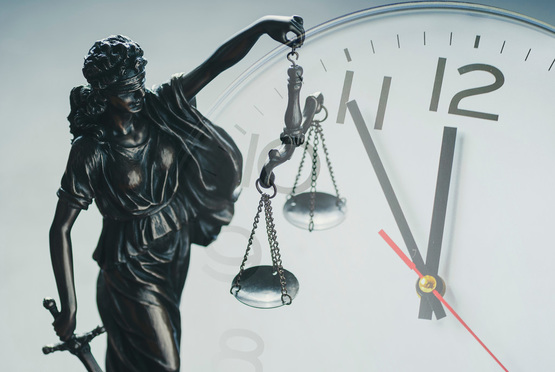Are Juvenile Curfew Laws Effective Crime Stoppers?
Cities around the country have weathered large-scale legal and illegal citizen reactions following the death of George Floyd in Minneapolis. In response, many communities have imposed curfews. From a social policy perspective, is a juvenile curfew law a common sense public safety tool or an example of undue and unnecessary interference from the government?
April 16, 2021 at 10:34 AM
4 minute read

In many legal spheres minors have identical constitutional protections as adults. There are times when, due to "their unique vulnerability, immaturity, and need for parental guidance" (Hutchins v. District of Columbia, 188 F.3d 531, 541 (D.C. Cir. 1999)), the state is permitted to regulate control over a minor's movements and activities. Juvenile curfew laws and ordinances are examples of such regulations. Their purpose is to help deter criminal behavior and protect minors. Categorized as "status offences," a curfew violation is an act that would not be deemed criminal if it was committed by an adult.
Cities around the country have weathered large-scale legal and illegal citizen reactions following the death of George Floyd in Minneapolis. In response, many communities have imposed curfews. While such laws frequently allow for common sense exemptions (e.g., when the minor is accompanied by an adult, or in an emergency), these laws may still not pass constitutional muster. Curfews, in general, can be attacked from many angles. For instance, plaintiffs in Florida recently argued that "the county's curfew is unconstitutional as it is a content-based restriction which cannot withstand constitutionally required strict scrutiny. The county, in response, argues that its curfew is a content-neutral time, place, and manner restriction and should be upheld under intermediate scrutiny." 7020 Entm't v. Miami-Dade Cty., 2021 U.S. Dist. LEXIS 25929 (Feb. 11, 2021).
This content has been archived. It is available through our partners, LexisNexis® and Bloomberg Law.
To view this content, please continue to their sites.
Not a Lexis Subscriber?
Subscribe Now
Not a Bloomberg Law Subscriber?
Subscribe Now
NOT FOR REPRINT
© 2025 ALM Global, LLC, All Rights Reserved. Request academic re-use from www.copyright.com. All other uses, submit a request to [email protected]. For more information visit Asset & Logo Licensing.
You Might Like
View All
Neighboring States Have Either Passed or Proposed Climate Superfund Laws—Is Pennsylvania Next?
7 minute read

Relaxing Penalties on Discovery Noncompliance Allows Criminal Cases to Get Decided on Merit
5 minute read
Trending Stories
- 1'AI-Generated' Case References? This African Law Firm Is Under Investigation
- 2John Deere Annual Meeting Offers Peek Into DEI Strife That Looms for Companies Nationwide
- 3Why Associates in This Growing Legal Market Are Leaving Their Firms
- 4Visa's Defense of DOJ Antitrust Case Suffers Setback After Court Denies Motion to Dismiss
- 5Greenberg Traurig Combines Digital Infrastructure and Real Estate Groups, Anticipating Uptick in Demand
Who Got The Work
J. Brugh Lower of Gibbons has entered an appearance for industrial equipment supplier Devco Corporation in a pending trademark infringement lawsuit. The suit, accusing the defendant of selling knock-off Graco products, was filed Dec. 18 in New Jersey District Court by Rivkin Radler on behalf of Graco Inc. and Graco Minnesota. The case, assigned to U.S. District Judge Zahid N. Quraishi, is 3:24-cv-11294, Graco Inc. et al v. Devco Corporation.
Who Got The Work
Rebecca Maller-Stein and Kent A. Yalowitz of Arnold & Porter Kaye Scholer have entered their appearances for Hanaco Venture Capital and its executives, Lior Prosor and David Frankel, in a pending securities lawsuit. The action, filed on Dec. 24 in New York Southern District Court by Zell, Aron & Co. on behalf of Goldeneye Advisors, accuses the defendants of negligently and fraudulently managing the plaintiff's $1 million investment. The case, assigned to U.S. District Judge Vernon S. Broderick, is 1:24-cv-09918, Goldeneye Advisors, LLC v. Hanaco Venture Capital, Ltd. et al.
Who Got The Work
Attorneys from A&O Shearman has stepped in as defense counsel for Toronto-Dominion Bank and other defendants in a pending securities class action. The suit, filed Dec. 11 in New York Southern District Court by Bleichmar Fonti & Auld, accuses the defendants of concealing the bank's 'pervasive' deficiencies in regards to its compliance with the Bank Secrecy Act and the quality of its anti-money laundering controls. The case, assigned to U.S. District Judge Arun Subramanian, is 1:24-cv-09445, Gonzalez v. The Toronto-Dominion Bank et al.
Who Got The Work
Crown Castle International, a Pennsylvania company providing shared communications infrastructure, has turned to Luke D. Wolf of Gordon Rees Scully Mansukhani to fend off a pending breach-of-contract lawsuit. The court action, filed Nov. 25 in Michigan Eastern District Court by Hooper Hathaway PC on behalf of The Town Residences LLC, accuses Crown Castle of failing to transfer approximately $30,000 in utility payments from T-Mobile in breach of a roof-top lease and assignment agreement. The case, assigned to U.S. District Judge Susan K. Declercq, is 2:24-cv-13131, The Town Residences LLC v. T-Mobile US, Inc. et al.
Who Got The Work
Wilfred P. Coronato and Daniel M. Schwartz of McCarter & English have stepped in as defense counsel to Electrolux Home Products Inc. in a pending product liability lawsuit. The court action, filed Nov. 26 in New York Eastern District Court by Poulos Lopiccolo PC and Nagel Rice LLP on behalf of David Stern, alleges that the defendant's refrigerators’ drawers and shelving repeatedly break and fall apart within months after purchase. The case, assigned to U.S. District Judge Joan M. Azrack, is 2:24-cv-08204, Stern v. Electrolux Home Products, Inc.
Featured Firms
Law Offices of Gary Martin Hays & Associates, P.C.
(470) 294-1674
Law Offices of Mark E. Salomone
(857) 444-6468
Smith & Hassler
(713) 739-1250






